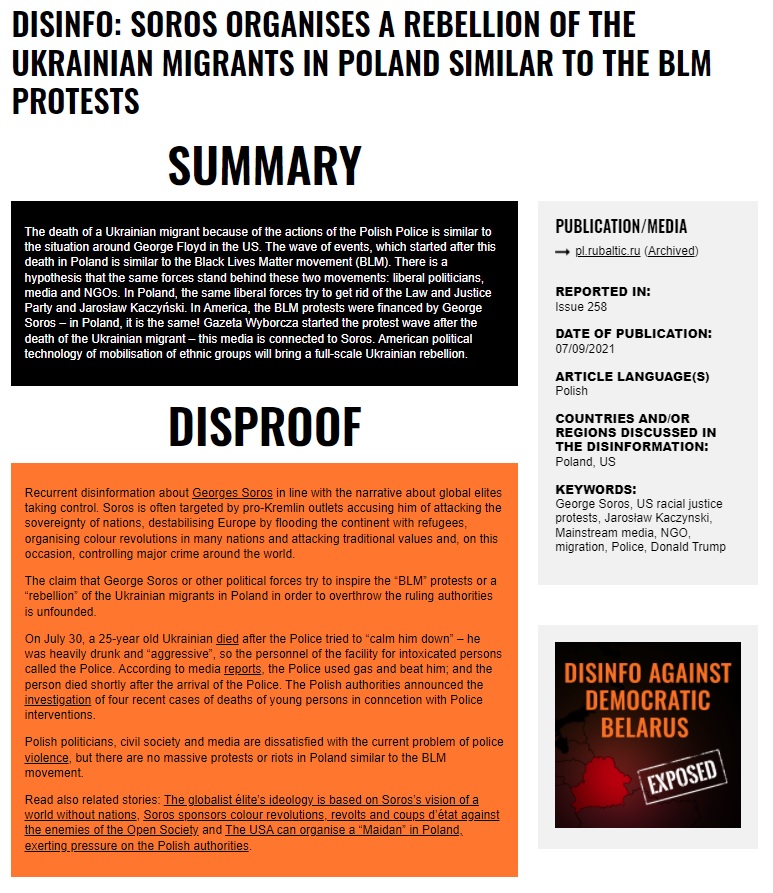Military hostilities used to be the last argument of sovereigns. The barrels of canons would bear the inscription ultima ratio regum (in France) or ultima ratio regis (in Prussia). This has changed a little bit. Since warfare has become a very costly venture and especially since a number of states possess nuclear weapons whose possible use might wreak unimaginable havoc and render large swathes of territory useless for the victorious power, present-day sovereigns have resorted more and more to soft tactics, which are – despite their name – as efficient or even more efficient than firearms. Did not the Soviet Union collapse due to the soft penetration, infiltration and subversion applied by the West? The collective mind of the Soviet leadership was in the cross hairs of the financial, philosophical, political and cultural impact directed against it by the United States, the United Kingdom, France, Germany and smaller players. The result was more than impressive: neither Charles XII of Sweden in the 18th century, nor Napoleon Bonaparte in the 19th, nor Adolf Hitler in the 20th succeed in weakening Russia to anything remotely comparable with what happened with the Soviet Union in 1991 and thereafter. The territory of the superpower was significantly reduced, new independent states were carved out of it, and Russia herself was plunged into a decade of economic chaos and political turmoil in their magnitude surpassed only by the civil war of the early twenties of the 20th century if one only considers modern history. The battle for the minds is certainly not as spectacular as the clash between tanks or dogfights of aircraft, and it certainly is fought over a much extended period, but nonetheless its outcome is more than satisfactory.
The Chinese leadership drew its lessons from the disintegration of the Soviet Union and they have held a tight grip on the state matters before and especially since the 1989 Tiananmen Square riot. Beijing is well aware of the psychological infiltration, penetration and subversion targeting China’s population from abroad and so it has cut off the national internet from the global web and recently has cracked down on the entertainment industry, took control of the computer games and TV programmes to which the Chinese youth is exposed. That’s another instance of the battles for the minds. The European Union is not lagging behind in matters concerning psychological war.
In 2015, the EU’s East StratCom Task Force rolled out its flagship project – as they call it themselves – named EUvsDisinfo, a body that “identifies, compiles, and exposes disinformation cases originating in pro-Kremlin media that are spread across the EU and Eastern Partnership countries.” Within this project, in one of the tabs, news items originating from the sources just mentioned are quoted – white on black – and a disproof is presented: black on orange. In other places a whole analysis is offered, an analysis that devastatingly critiques a text recognised as the Kremlin’s propaganda. Surveying the hundreds of allegedly debunked pieces of information and their sources, one can see almost immediately that EUvsDisinfo has been targeting Sputnik most of the time. Anything that is written against the Post-West, the European Union, the United States, even individuals like George Soros in the media associated with Moscow or regarded as close to Russia comes under attack from EUvsDisinfo, which – naturally! – acts as an absolutely objective source of truth. Consider the following example.

On September 17, 2021, an article was run on EUvsDisinfo under the title “Lukashenka’s Belarus Celebrates the Soviet Attack on Poland,” in which the presidential Decree No. 206 of June 7, 2021 is dealt with. The decree establishes the Day of the People’s Unity to be celebrated on September 17. Despite the claims that everybody in Europe knows what the date stands for, EUvsDisinfo explains that on this day in 1939 the Soviet Union began implementing the secret protocol known as the Molotov-Ribbentrop Pact, within the framework of which Germany and the Soviet Union were to partition Poland. Germany began implementing the terms of the pact on September 1, the Soviets – on September 17. EUvsDisinfo concludes that the Day of the People’s Unity celebrates Belarus’s territorial expansion, deliberately infuriates Poland, and diverts the attention of Belorussians from the fact that the country is slowly losing its independence to Russia.
This is an example of a selective presentation of facts that is based on the otherwise correct assumption that the recipients of the information have poor if any knowledge of history and are not willing to check what they are fed. What does EUvsDisinfo intentionally leave out?
-
The territories annexed in 1939 by the Soviet Union and incorporated into the Soviet Belorussian socialist republic were inhabited predominantly by Belorussians and granted to Poland only twenty years earlier as a result of a war between Poland and the Soviet Union.
-
The Molotov-Ribbentrop Pact was a product of the policies pursued by the then European powers, not excluding France and the United Kingdom, whose prime ministers readily ceded Austria and Czechia to the German Reich, knowing full well who the next victim of Hitler’s policy would be.
-
If Alexandr Lukashenko is losing its sovereignty to Vladimir Putin, it is solely because of the actions of the Post-West and Poland as the Post-West’s willing executioner, actions that push the Belorussian president into Russia’s embrace. A comparison of pushing Czechoslovakia into the German embrace in the years 1938-39 is more than obvious.
-
By establishing the Day of the People’s Unity, by flying Third World migrants and letting them loose on Lithuanian and Polish territories, President Lukashenko is merely retaliating for the policies pursued by these countries, which openly seek to violently overthrow the Minsk government by – among others – giving open support to Belorussian dissenters and – in the case of Poland – running a subversive Belsat TV, which has been broadcasting in Belorussian anti-Lukashenko propaganda for years.
There is no smoke without a fire, or is there? EUvsDisinfo may be quite useful for you, the reader, though. If, reading it, you put a plus sign where the minus sign is and the other way round, you could gain much insight into the conflict between the Post-West and Russia.




